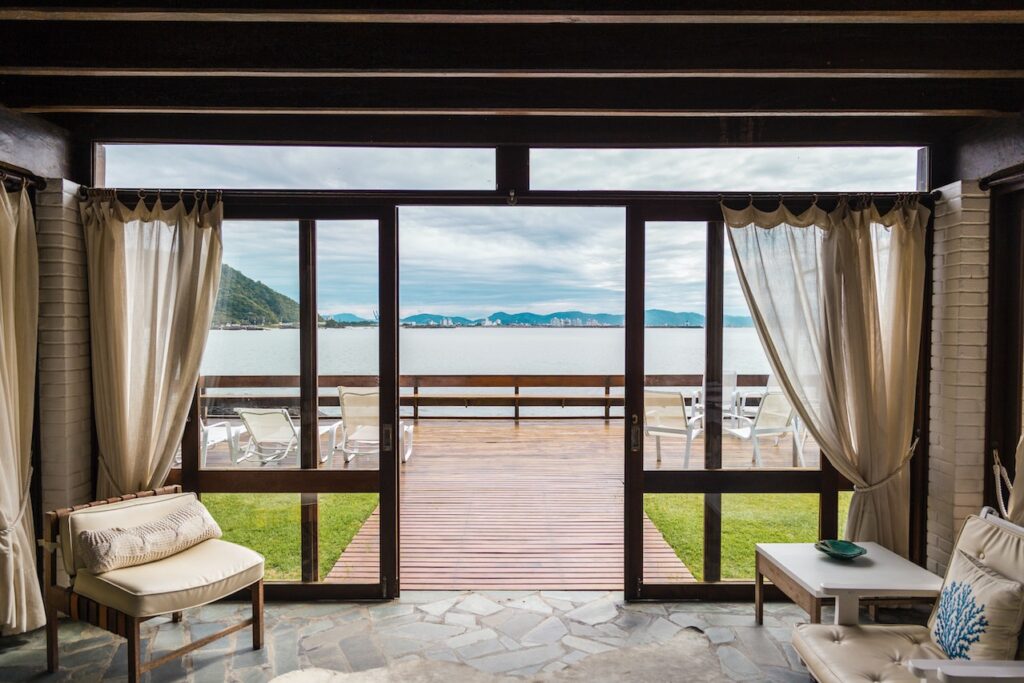Airbnb hosting is increasingly competitive, and seasoned hosts know that location is everything when it comes to achieving solid returns. In 2025, identifying the right markets for Airbnb investment isn’t just about finding popular destinations—it’s about targeting locations with the potential to deliver long-term profitability. This guide dives into key cities and regions that stand out for their short-term rental potential based on factors like market demand, regulations, and economic trends.
Targeting High-Growth Regions: A Data-Driven Approach
Boise, Idaho: A Hidden Gem for Long-Term Growth
While major metropolitan areas tend to get the most attention, Boise is quietly becoming a hotspot for Airbnb investors. The city’s rapid population growth, driven by tech and remote work opportunities, is increasing demand for short-term rentals.
Key Metrics:
Boise’s occupancy rates for Airbnb properties hover around 70%, and the average nightly rate is trending upwards.
Why It Works:
Boise’s appeal lies in its blend of outdoor attractions, growing cultural scene, and affordability compared to larger cities. With the rise in remote work, travelers are booking stays in secondary cities where they can combine work and leisure.
Pro Tip:
Focus on properties near downtown or within walking distance of outdoor amenities like the Boise River Greenbelt. Guests are willing to pay a premium for convenience and proximity to activities.
Lisbon, Portugal: A Global Favorite with Smart Potential
Lisbon has long been a favorite among tourists, and its Airbnb market remains strong despite growing regulation. Investors willing to navigate local rules can benefit from high demand and attractive returns.
Market Snapshot:
Lisbon consistently ranks as one of Europe’s top destinations, with occupancy rates exceeding 80% during peak seasons. The average daily rate is around €120 for well-located properties.
What’s Changing:
Short-term rental laws are becoming stricter, but this has created opportunities for savvy hosts to stand out by adhering to regulations and offering premium experiences.
Pro Tip:
Focus on upscale properties in neighborhoods like Alfama or Bairro Alto. Travelers seek authentic experiences, and these areas provide historic charm paired with proximity to Lisbon’s key attractions.
The Power of Regional Diversification
Gatlinburg, Tennessee: Tapping into America’s National Park Tourism
Short-term rentals in smaller tourist-driven towns are outperforming traditional urban markets. Gatlinburg is a prime example, thanks to its position as the gateway to the Great Smoky Mountains National Park.

Performance Indicators:
Properties in Gatlinburg average over $300 per night during peak travel seasons, with occupancy rates topping 90%.
Why It Stands Out:
Families and groups prefer spacious cabins or homes, making multi-bedroom properties particularly lucrative.
Pro Tip:
Prioritize properties with scenic views or unique amenities like hot tubs or game rooms. These features significantly boost bookings and justify higher nightly rates.
Dubai, UAE: A Year-Round Market for Luxury Rentals
Dubai’s robust tourism infrastructure and global appeal make it an excellent choice for investors targeting affluent travelers. The city’s tax-free environment and steady flow of international visitors ensure demand remains high.
Market Snapshot:
Dubai boasts some of the highest average daily rates globally, with luxury properties fetching upwards of $500 per night.
What to Know:
Areas like Downtown Dubai and Palm Jumeirah attract high-paying guests. Properties with amenities such as rooftop pools or concierge services are especially competitive.
Pro Tip:
Focus on offering tailored luxury experiences. High-end travelers are willing to pay more for extras like private chefs, curated local experiences, or even airport transfers.
Emerging Markets Worth Watching
Medellín, Colombia: Affordable Entry with High Returns
Medellín has undergone a remarkable transformation, evolving into a favorite destination for digital nomads and international tourists. Its affordability and year-round pleasant climate make it an attractive option for Airbnb investors.
Market Highlights:
A modern two-bedroom apartment in popular neighborhoods like El Poblado can yield $2,000–$3,000 monthly, with initial property investments often under $150,000.
What Drives Demand:
Medellín’s appeal lies in its mix of affordability, vibrant culture, and strong expat community.
Pro Tip:
Cater to longer-term stays by providing work-friendly amenities like high-speed internet and ergonomic desks. Digital nomads prioritize comfort and functionality for extended bookings.
Kyoto, Japan: Capturing the Post-Pandemic Travel Boom
Kyoto is experiencing a resurgence in international tourism as Japan fully reopens to visitors. Known for its historic charm and cultural significance, Kyoto attracts travelers who are willing to spend more for an immersive experience.
Current Trends:
While Japan’s short-term rental market has strict regulations, Kyoto’s average nightly rates for traditional-style homes (machiya) are significantly higher than standard listings.
What Sets It Apart:
Guests value authenticity, making traditional properties far more desirable than modern apartments.
Pro Tip:
Renovating and listing a machiya with traditional Japanese features like tatami floors or a garden can command higher prices and ensure consistent bookings.
Investing in Airbnb properties isn’t without its challenges. Hosts must consider factors like market saturation, regulatory changes, and rising costs. Staying ahead requires strategic planning and adaptability.

Lake Tahoe, California/Nevada: Balancing Demand with Regulation
Lake Tahoe’s vacation rental market remains strong, but local regulations are tightening. Hosts must navigate permitting processes and caps on rental availability.
Opportunity Zones:
Areas on the Nevada side of the lake tend to have fewer restrictions and lower taxes, making them more investor-friendly.
Guest Preferences:
Properties with lake views, easy ski access, or proximity to hiking trails tend to book faster and for higher rates.
Pro Tip:
Stay informed about evolving local rules and prioritize compliance. Properties that operate legally will outperform competitors as regulatory enforcement increases.
Athens, Greece: An Underrated European Option
Athens is gaining traction as a short-term rental destination, driven by its affordability compared to other European capitals and its year-round appeal.
Why It’s Attractive:
Athens benefits from steady tourism and a growing interest in Greek culture and history. Average daily rates are climbing, particularly for well-located apartments near historical landmarks.
What to Watch:
Consider properties in areas like Plaka or Kolonaki, where tourists prefer to stay due to walkability and proximity to major attractions.
Pro Tip:
Offer add-ons like guided tours or curated local dining experiences. These extras enhance the guest experience and help justify premium pricing.
Advanced Strategies for Maximizing ROI
Leverage Seasonal Pricing Tools:
Platforms like PriceLabs and Beyond Pricing help optimize nightly rates based on demand fluctuations, ensuring you’re never leaving money on the table.
Focus on High-Value Amenities:
Features like fast Wi-Fi, dedicated workspaces, or pet-friendly accommodations can increase bookings and justify higher rates.
Automate Operations:
Streamline your Airbnb management with tools like Hostaway or Guesty, which simplify guest communication, cleaning schedules, and reviews.
Target Off-Peak Travelers:
Offer discounts for mid-week stays or target groups like retirees and digital nomads who are less tied to traditional travel seasons.
Invest in Professional Photography:
Listings with high-quality photos consistently perform better. A small upfront investment in professional photography can pay off significantly.
Final Thoughts
Airbnb investment in 2025 requires more than just picking a popular destination. Success lies in analyzing data, understanding guest preferences, and staying ahead of market trends. By targeting high-growth regions, adapting to regulatory changes, and delivering exceptional guest experiences, seasoned hosts can maximize ROI and stay competitive in an increasingly sophisticated market.












